The demand for professionals who can help others manage their time, boost performance, and maintain focus has never been higher. As remote work and flexible schedules become the norm, individuals and organizations are increasingly turning to productivity coaches for guidance. These experts empower clients to unlock their potential and achieve measurable progress in both personal and professional life. With a productivity coach certification, aspiring coaches can establish credibility, gain proven tools, and position themselves for a sustainable and rewarding career.
Why Productivity Coaching Is in High Demand
The modern workplace has become a breeding ground for distractions and burnout. Professionals are struggling to manage their tasks, maintain focus, and achieve balance in their daily lives. This has created a significant opportunity for certified productivity coaches who specialize in guiding clients toward structured, goal-oriented performance improvements. Businesses now recognize that employee productivity directly influences profitability, and individuals are increasingly investing in coaching to enhance their time management and decision-making skills.
Post-pandemic shifts have reshaped how people work, making productivity coaching essential. Companies operating in hybrid or remote environments need team members who can stay disciplined and accountable without constant supervision. Productivity coaches bridge this gap by introducing personalized systems and mental frameworks that drive consistency. This rise in demand signals that productivity coaching is more than just a passing trend—it’s a profession that aligns perfectly with the evolving nature of work.
Understanding What a Productivity Coach Does
A productivity coach is not just a motivational speaker or time management consultant. They help clients identify performance barriers, develop strategies, and sustain habits that support efficiency and balance. Certified coaches use proven frameworks to guide individuals and teams through a process of self-assessment, planning, and accountability. Their primary goal is to help clients optimize time, energy, and focus to produce better results with less stress.
While a life coach might focus on general personal growth, a productivity coach zeroes in on systems, structure, and sustainable performance habits. Certified productivity coaches are trained to identify inefficiencies, assess behavioral patterns, and build custom solutions that align with the client’s goals. Through ongoing support and structured accountability, they help clients maintain momentum, track progress, and celebrate measurable wins.
What Is a Productivity Coach Certification
A productivity coach certification is a formal training and credentialing process that equips individuals with the knowledge, skills, and methodology to effectively coach clients toward greater productivity. Certification programs typically cover advanced coaching techniques, time management frameworks, behavioral psychology, and client communication strategies. This formal education ensures that coaches are not relying on guesswork but following structured methods that have proven success.
Obtaining certification also enhances a coach’s credibility in the marketplace. Clients want assurance that the person guiding them has received proper training and adheres to ethical standards. A certified coach can confidently demonstrate expertise and professionalism, which can lead to more referrals, partnerships, and higher earnings. Furthermore, certification allows aspiring coaches to differentiate themselves in a competitive industry by showcasing a legitimate and verifiable qualification.
Top Skills You’ll Develop in a Productivity Coach Certification Program
Enrolling in a productivity coach certification program provides a wide range of skills that empower you to deliver exceptional value to your clients. These programs often blend theory, practice, and personal development to ensure that coaches can apply what they learn in real-world settings. Among the most essential skills you’ll gain are:
- Time management and advanced goal-setting strategies
- Behavioral psychology and motivation techniques
- Coaching ethics and client confidentiality practices
- Accountability systems and feedback structures
- Business development and marketing for coaching professionals
These skills don’t just help in coaching sessions—they’re also invaluable in managing your own business. By mastering communication, organization, and emotional intelligence, you’ll be better equipped to inspire transformation in others while maintaining balance in your own career.
How to Choose the Right Productivity Coach Certification Program
Selecting the right program can make or break your coaching journey. Not all certifications carry the same weight, so it’s vital to do thorough research before enrolling. Look for programs that are accredited by reputable coaching organizations, such as the International Coaching Federation (ICF) or similar governing bodies. Accreditation ensures that the program adheres to industry standards and delivers a curriculum that builds both competence and confidence.
Before committing, evaluate the following factors:
- Course structure and length
- Access to mentorship or supervised coaching hours
- Flexibility of online or hybrid learning
- Practical application and peer learning opportunities
- Post-certification support, such as networking and business tools
Avoid programs that make unrealistic promises or lack transparent information about costs and accreditation. The best certifications provide not just knowledge, but also community, mentorship, and ongoing growth opportunities.
Cost, Duration, and Format of Certification Programs
The investment in a productivity coach certification varies based on the institution, format, and level of accreditation. On average, programs can cost anywhere from $1,000 to $6,000. More comprehensive or accredited courses tend to be on the higher end but often include personal mentorship, live workshops, and certification renewal benefits. The duration typically ranges from three months to a year, depending on whether you choose a self-paced or instructor-led format.
Online certifications are increasingly popular due to their flexibility and accessibility. They allow working professionals to learn at their own pace and from the comfort of their homes. However, some learners still prefer in-person training for its hands-on experience and real-time interaction. When budgeting, be mindful of hidden costs such as renewal fees, exam retakes, or additional materials. Always confirm whether certification maintenance requires annual fees or continued education credits.
What to Expect During Your Certification Journey
The certification process involves a mix of theoretical learning, practical exercises, and real-world coaching practice. Students often begin with foundational modules that explore coaching ethics, productivity frameworks, and client psychology. This is followed by live or recorded coaching sessions where learners practice applying strategies in simulated or real settings. Regular assessments, written assignments, and peer feedback sessions are integral parts of the process.
Expect to engage in reflective journaling, role-playing exercises, and performance evaluations. Some programs also require a final exam or portfolio review to ensure readiness for certification. The learning journey is immersive and designed to help you build confidence while developing your unique coaching style. Participants who actively engage with peers and mentors tend to see better outcomes and feel more prepared to start their professional practice.
Career Opportunities After Certification
Once certified, productivity coaches can pursue a range of career paths across industries. Many professionals choose to start their own coaching business, offering one-on-one or group coaching services. Others collaborate with organizations as performance consultants, helping employees streamline workflows and enhance efficiency. Educational institutions, corporate training departments, and entrepreneurial networks also hire certified coaches to boost productivity and leadership performance.
Certified productivity coaches may also work as:
- Executive or leadership coaches
- Time management specialists
- Corporate trainers or workshop facilitators
- Freelance consultants for startups and businesses
The income potential varies, but many certified coaches earn between $50 to $300 per session, depending on their niche and experience. As your reputation grows, you can command higher fees, create online courses, or develop digital products that scale your income further.
Advantages of Getting Certified as a Productivity Coach
Certification provides tangible and intangible benefits that elevate your career trajectory. First, it gives you instant credibility with potential clients who value formal qualifications. It also provides structured coaching methods that make your sessions more effective and consistent. You’ll gain access to exclusive communities, mentorship opportunities, and continuing education that keeps your skills sharp and relevant.
Other advantages include:
- Improved client retention and satisfaction rates
- Access to proven coaching templates and frameworks
- Stronger marketing appeal and personal branding
- Higher earning potential through professional positioning
Becoming certified not only validates your expertise but also instills confidence that you can create real transformation in others’ lives.
Common Misconceptions About Productivity Coach Certification
Many people believe that coaching certification isn’t necessary—that natural communication skills or experience alone are enough. While those traits are valuable, certification ensures you possess standardized, ethical, and effective coaching methods. Another misconception is that online certifications lack legitimacy, but in reality, many of the top programs now operate virtually with the same rigor and mentorship as traditional courses.
Some also think certification is overly expensive or time-consuming, yet the return on investment is often significant. Certified coaches typically attract more clients, charge higher rates, and gain access to international opportunities. The truth is that certification isn’t just a formality—it’s a foundation for trust, professionalism, and measurable results.
Tips for Succeeding as a Certified Productivity Coach
Success as a certified productivity coach goes beyond earning your credential. It involves continuous learning, adaptability, and relationship-building. To thrive in this industry, focus on finding your niche and aligning your services with your passions and expertise. Specializing in a particular area—such as executive productivity or digital organization—can help you stand out.
Here are strategies to help you excel:
- Build a personal brand through consistent online presence
- Offer free workshops or resources to attract new clients
- Gather testimonials and measurable outcomes
- Join professional associations for networking and visibility
- Keep learning through advanced certifications or specializations
Consistency, authenticity, and client impact will be the biggest drivers of your long-term success.
Frequently Asked Questions
How long does it take to become a certified productivity coach?
Most certification programs take between three months to one year, depending on the intensity and format of the course.
Do I need prior coaching experience to get certified?
No prior experience is required. Many programs cater to beginners and include foundational training.
Is online certification as credible as in-person training?
Yes. As long as the program is accredited and includes practical components, online certification is equally recognized.
What’s the difference between a productivity coach and a business coach?
A productivity coach focuses on personal efficiency, time management, and performance, while a business coach addresses strategy, leadership, and organizational growth.
Can I make a full-time income as a certified productivity coach?
Yes. Many certified coaches build thriving full-time practices, offering private sessions, group programs, and workshops.
Takeaway
Earning a productivity coach certification is more than a professional milestone—it’s an opportunity to build a fulfilling and impactful career. The training provides a structured foundation for helping others thrive while enhancing your own performance and business potential. With dedication, continuous learning, and the right certification, you can transform your passion for productivity into a sustainable profession that changes lives.











